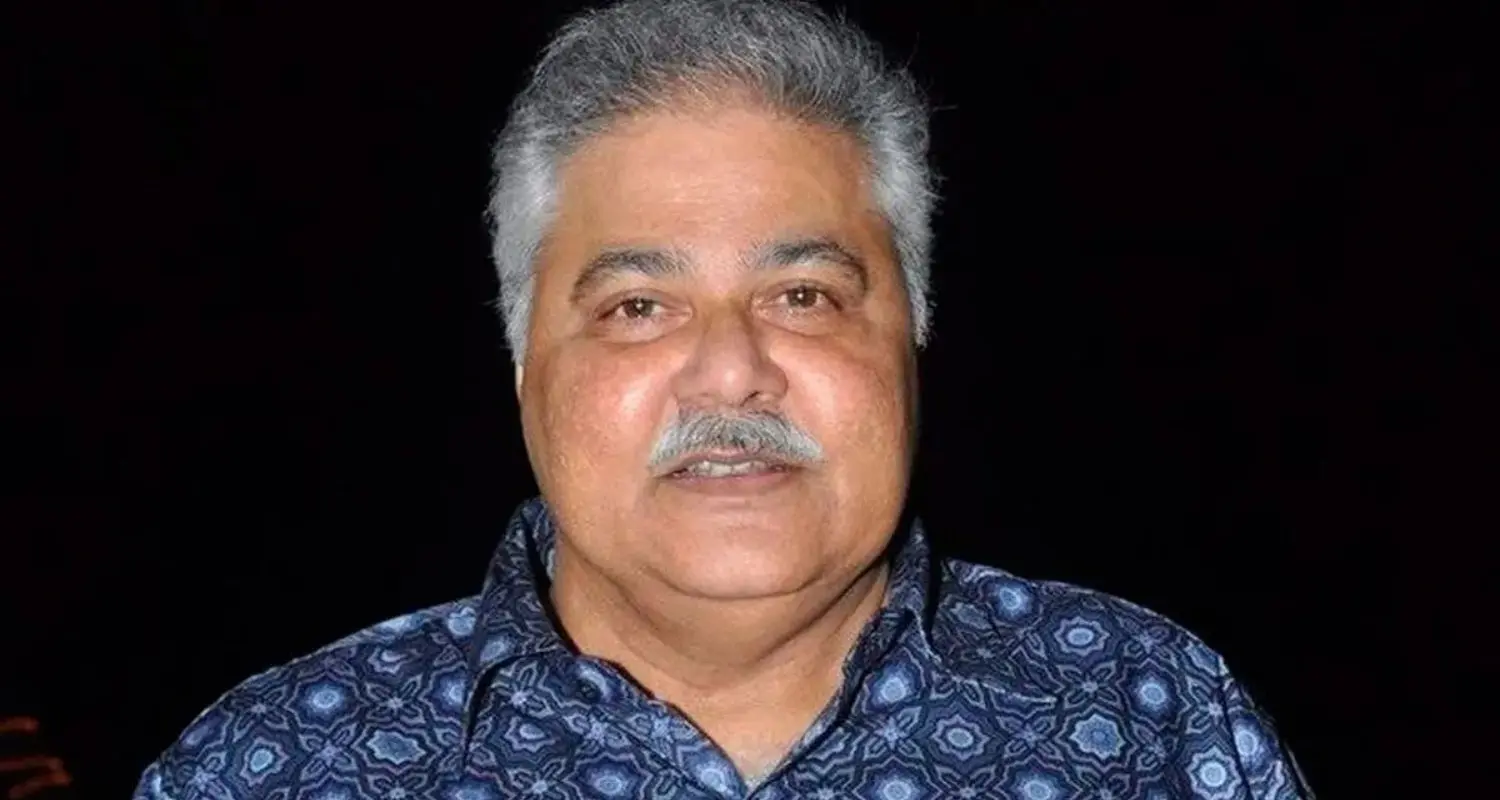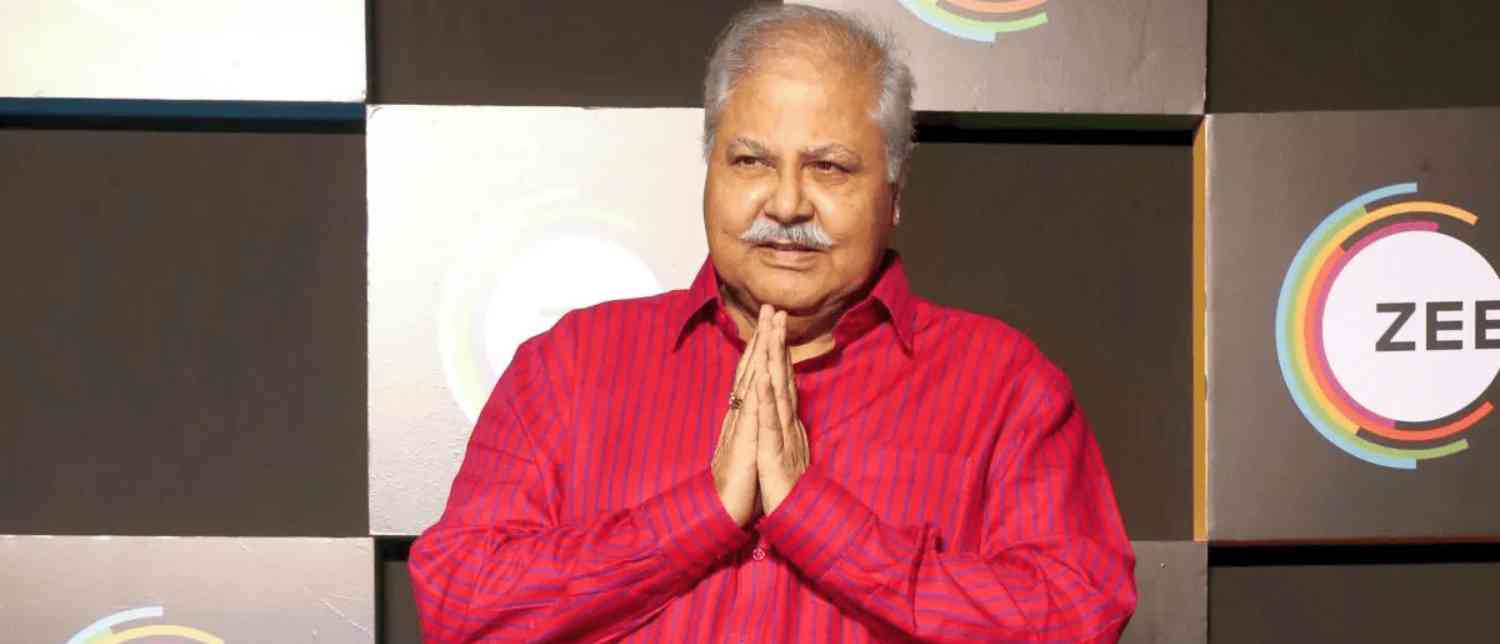Veteran actor Satish Shah, best known for his unforgettable comic timing and iconic roles in Sarabhai vs Sarabhai, Main Hoon Na, and Kal Ho Naa Ho, has passed away at the age of 74. The actor breathed his last at Mumbai’s Hinduja Hospital after suffering from kidney failure, a condition that claimed his life despite emergency medical efforts.
The heartbreaking news was confirmed by filmmaker Ashoke Pandit, a close friend of the late actor. “Our friend, a great actor, Satish Shah has passed away due to kidney failure. He suddenly fell ill at home and was rushed to Hinduja Hospital, but could not be revived,” Pandit shared in an emotional Instagram post.
The passing of the beloved actor has sent shockwaves through the entertainment industry, reminding everyone of both his immense contribution to Indian television and cinema—and the growing concern around kidney health in India and worldwide.

A Stellar Career Cut Short
Satish Shah was not just another actor — he was a legend in his own right. Beginning his career in the 1970s, Shah made his mark in television and films alike. His portrayal of Indravadan Sarabhai in Sarabhai vs Sarabhai remains etched in the collective memory of audiences as one of Indian television’s most endearing and witty characters.
His earlier work in Yeh Jo Hai Zindagi (1984) also showcased his unparalleled versatility — he played 55 different characters across 55 episodes, a feat rarely achieved by any actor. On the big screen, Shah added charm and humor to films like Jaane Bhi Do Yaaro, Hum Saath Saath Hain, Kal Ho Naa Ho, and Main Hoon Na.
Friends and co-stars remembered him fondly.
Actor Rajesh Kumar, his Sarabhai vs Sarabhai co-star, told SCREEN, “This is the worst hour for me. I still cannot process that Satish ji is no more — it feels like I have lost my father.”
Actress Amrita Rao, who worked with him in Main Hoon Na and Ishq Vishk, added, “Satish Shah Sir always brought a smile to my face both on and off the screen. His humour and vibrancy will always live in my memory.”
What Led to Satish Shah’s Death
Reports reveal that Shah had undergone a kidney transplant earlier this year and had been on dialysis. Despite his health struggles, he remained resilient, driven by his devotion to his wife Madhu, who is reportedly battling Alzheimer’s. Actor Sachin Pilgaonkar, a close friend, shared, “He wanted to extend his life so that he could take care of Madhu. He had been through a bypass surgery earlier as well, which was successful.”
According to a statement by P.D. Hinduja Hospital & Medical Research Centre, an emergency call was received after Shah became unresponsive at home. “CPR was started in the ambulance and continued upon arrival at the hospital. Despite the best efforts of our medical team, Mr. Shah could not be revived,” the hospital said.
His death has reignited attention toward kidney failure, a condition that affects millions and often progresses silently until it reaches a critical stage.

What Is Kidney Failure?
Kidney failure, medically known as end-stage renal disease (ESRD), occurs when the kidneys lose their ability to filter waste and excess fluids from the blood. This can happen gradually over time (chronic kidney disease) or suddenly (acute kidney injury).
According to The Lancet, chronic kidney disease (CKD) is a global public health problem affecting nearly 10% of the world’s population. Left untreated, kidney failure can be life-threatening and requires dialysis or a kidney transplant.
7 Common Causes of Kidney Failure
Kidney failure is not caused by one single factor—it’s often the result of long-standing conditions that progressively damage kidney function. Here are the most common causes:
1. Diabetes (Diabetic Nephropathy)
Diabetes is the leading cause of kidney failure globally. High blood sugar damages the tiny filtering units (nephrons) in the kidneys, making it harder for them to clean the blood.
According to the U.S. Centers for Disease Control and Prevention (CDC), between 2000 and 2019, diabetes was the main cause in most cases of end-stage kidney disease.
2. Hypertension (High Blood Pressure)
High blood pressure is the second leading cause of chronic kidney disease after diabetes. Hypertension damages the blood vessels in the kidneys, reducing their ability to filter waste effectively.
3. Glomerulonephritis
Glomerulonephritis refers to a group of diseases that cause inflammation of the glomeruli — the microscopic filters in the kidneys. Persistent inflammation impairs their ability to remove toxins, potentially leading to chronic kidney disease and eventual failure.
4. Polycystic Kidney Disease (PKD)
A genetic disorder, Polycystic Kidney Disease causes clusters of fluid-filled cysts to develop in the kidneys, gradually replacing healthy tissue. The Mayo Clinic notes that PKD often runs in families and can lead to severe kidney impairment over time.
5. Urinary Tract Obstructions
When urine flow is blocked anywhere along the urinary system — from the kidneys to the urethra — it can cause backflow pressure, swelling, and tissue damage.
Common causes include:
-
Kidney stones
-
Enlarged prostate
-
Tumors
-
Congenital abnormalities
-
Scar tissue or blood clots
If untreated, these obstructions can result in hydronephrosis (swelling of the kidneys) and ultimately kidney failure.
6. Drug-Induced Kidney Injury
Overuse or misuse of certain medications can harm the kidneys. The National Institutes of Health (NIH) identifies drug-induced injury as a common cause of acute kidney injury (AKI).
Medications linked to kidney damage include:
-
NSAIDs like ibuprofen and naproxen
-
Antibiotics such as gentamicin and vancomycin
-
Chemotherapy drugs like cisplatin and methotrexate
-
Contrast dyes used in medical imaging
-
Proton Pump Inhibitors (PPIs) when used long-term
7. Acute Kidney Injury (AKI)
AKI is a sudden decline in kidney function occurring within hours or days. While it can often be reversed with timely treatment, repeated or severe episodes can cause permanent damage and lead to chronic kidney disease.
Recognizing the Warning Signs of Kidney Failure
As public health expert Dr. Jagadish Hiremath explains, “Kidney failure is a condition where the kidneys gradually lose their ability to filter waste and maintain fluid and mineral balance. When function declines significantly, toxins build up in the blood, affecting the heart, bones, and overall health.”
Often called a “silent disease,” kidney failure progresses subtly. Common warning signs include:
-
Persistent fatigue or weakness
-
Swelling in the ankles, feet, or around the eyes
-
Changes in urine — less output, foamy appearance, or blood in urine
-
Nausea, vomiting, or loss of appetite
-
Itchy, dry skin
-
Shortness of breath, especially when lying down
Dr. Hiremath adds, “People with diabetes or high blood pressure should be especially alert to these symptoms and get regular kidney function tests.”
Who Is at Risk?
Certain factors increase the likelihood of kidney disease:
-
Older age
-
Family history of kidney disorders
-
Obesity or metabolic syndrome
-
Heart disease
-
Smoking and alcohol consumption
-
Diet high in salt and processed foods
Given how gradually kidney damage progresses, early screening is critical for people in high-risk groups.
Preventing Kidney Failure: How to Protect Your Kidneys
Prevention begins with awareness and healthy lifestyle choices. Dr. Hiremath outlines essential steps:
-
Manage Diabetes and Blood Pressure:
Keep blood sugar and blood pressure under control through medication, diet, and regular monitoring.
-
Eat a Balanced Diet:
Reduce salt, processed foods, and excess protein. Eat plenty of fruits, vegetables, and whole grains.
-
Stay Hydrated:
Drink adequate water throughout the day unless advised otherwise by a doctor.
-
Exercise Regularly:
Staying physically active helps regulate weight and supports kidney and heart health.
-
Avoid Overuse of Painkillers:
NSAIDs and certain over-the-counter drugs can damage kidneys if taken frequently or without medical supervision.
-
Quit Smoking and Limit Alcohol:
Both can accelerate kidney damage and worsen cardiovascular health.
-
Get Routine Screenings:
Regular blood and urine tests help detect early signs of kidney problems before they become severe.
“These preventive steps can greatly lower the chances of kidney failure in the long run,” Dr. Hiremath emphasizes.
A Final Goodbye
Satish Shah’s passing marks the end of an era in Indian entertainment. From playing dozens of characters in Yeh Jo Hai Zindagi to bringing laughter as Indravadan Sarabhai, he leaves behind a legacy of joy, laughter, and warmth.
His untimely demise from kidney failure also serves as a sobering reminder: our kidneys work silently but tirelessly — and their care should never be taken for granted.
With inputs from agencies
Image Source: Multiple agencies
© Copyright 2025. All Rights Reserved. Powered by Vygr Media.























